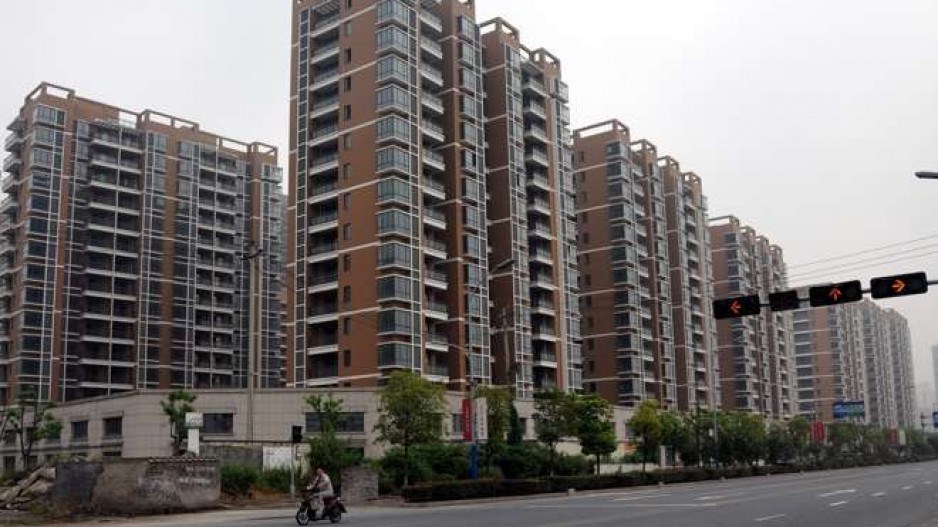China home price growth climbed last month to its highest level since a key index tracking the market began in January 2011, putting pressure on more cities to introduce cooling measures to curb demand.
Of the 70 cities surveyed in August, 64 saw average prices rise month-on-month, up from 51 in the previous month, the National Bureau of Statistics (NBS) said. Four cities reported a decline in new home prices from a month earlier, down from 16 in July, while two cities reported no change in average prices.
The cost of new homes in Shanghai registered the largest gain, a 5.2 per cent increase in August, compared to a 1.4 per cent rise in July, according to NBS.
“NBS 70- city housing price data suggested average price inflation continued to accelerate, and was at a record high level in August since the series started in January 2011,” Goldman Sachs said in a note.
Housing prices in the primary market increased 1.6 per cent month-on-month after seasonal adjustment (weighted by population) in August, higher than the growth rate in July, Goldman Sachs said.
On an annual basis, housing prices in the 70 cities were up 9.7 per cent last month.
In Beijing, new home price rose 3.8 per cent from July while Guangzhou saw a 2.4 per cent rise and Shenzhen climbed 2.1 per cent.
A rapid increase in mortgage loans is likely to have contributed to the housing price rally, the note said.
In August, medium- to long-term new loans to the household sector, mostly mortgages, came to 529 billion yuan, up 11 per cent from 477 billion yuan in July.
Hangzhou - where year-on-year prices soared 23 per cent - became the latest second-tier city to reintroduce a restriction barring non-local residents from buying more than one flat. Nearly 39 per cent of new flats have been sold to non-local residents so far this year.
Last month, the eastern cities of Nanjing and Suzhou, which reported rapid price gains during the first half of the year, introduced tightening policies to rein in the overheated market, following similar moves by the authorities in Hefei and Xiamen.
The measures included an increase in down payments for mortgages on second home purchases and a tightening of requirements for developers when bidding for land and pre-sold properties.
Alan Jin,an analyst at Mizuho Securities, said the accelerated price growth was due to an abundance of liquidity.
“The huge price appreciation seen over the last 12 months in some of the cities has created a wealth gap between those households who bought apartments last year and who have not,” he said.
Joe Zhou, head of research at JLL in China, attributed the rapid rise in Shanghai’s home prices to false rumours last month that the municipal government was about to introduce further restrictions to curb buying demand.
“It stirred up panic buying, with some new projects selling all their units at launch even at high prices,” he said.
Average new home prices in Shanghai’s city centre have reached to 100,000 yuanper square metre, he said.
But Zhou believes price growth in the city may have stabilised this month as home seekers discovered that the rumours of imminent cooling measures were untrue.
China’s housing ministry praised the recent arrests of seven real estate agents in Shanghai accused of spreading false statements about impending restrictions on home purchases in the city, which helped fuel a buying frenzy.
The agents were arrested for spreading false rumours in an attempt to influence the housing market and boost their earnings, according to a statement on the Shanghai police’s official Sina Weibo account early this month.
The rumours included claims that the People’s Bank of China would raise mortgage down payment requirements and increase borrowing rates for those who had been divorced for less than a year beginning on September 1.




